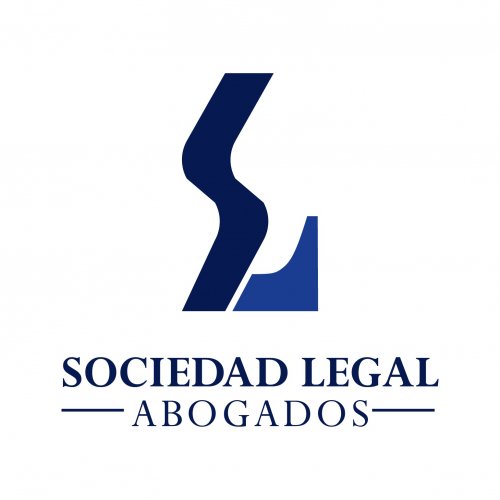Best Constitutional Law Lawyers in Ecuador
Share your needs with us, get contacted by law firms.
Free. Takes 2 min.
Or refine your search by selecting a city:
List of the best lawyers in Ecuador
About Constitutional Law in Ecuador
Constitutional Law in Ecuador is rooted in its Constitution, which serves as the supreme law of the land. The current Constitution of Ecuador, enacted in 2008, establishes the foundational legal framework governing the state, its institutions, and the rights and duties of its citizens. It emphasizes principles such as social justice, human rights, and environmental conservation. Ecuador's constitutional structure also embraces the idea of a "plurinational and intercultural" state, recognizing the diversity of its indigenous populations and their rights.
Why You May Need a Lawyer
Individuals may seek legal assistance in Constitutional Law in Ecuador for numerous reasons. Common situations include defending constitutional rights, challenging governmental actions that may infringe on personal freedoms, or interpreting constitutional provisions in complex legal cases. Legal disputes involving land rights, especially for indigenous communities, or cases concerning environmental protection and resource management may also require expertise in this field. Additionally, if you face any form of discrimination or rights violations, a constitutional lawyer can help navigate and advocate for these issues effectively.
Local Laws Overview
The Ecuadorian Constitution encompasses a wide array of rights and duties, including civil, political, social, economic, and cultural rights. It acknowledges diverse communities' autonomy and emphasizes the state's duty to respect and enhance these rights. Key aspects of local laws relevant to Constitutional Law include rights to education, health, and social security, as well as provisions for the protection of nature under the Rights of Nature ("Pachamama"). The legal framework also outlines mechanisms for constitutional adjudication, such as the Constitutional Court, which is tasked with interpreting and ensuring compliance with constitutional mandates.
Frequently Asked Questions
What is the role of the Constitutional Court in Ecuador?
The Constitutional Court is responsible for interpreting the Constitution and ensuring that laws, policies, and government actions comply with constitutional norms. It adjudicates disputes concerning constitutional rights and addresses issues of constitutional interpretation.
How does Ecuador recognize indigenous rights within its legal framework?
Ecuador's Constitution formally acknowledges the rights of indigenous peoples, granting autonomy in governance, cultural preservation, and territorial management. It promotes the principles of interculturalism and plurinationalism.
What are the Rights of Nature in Ecuador's Constitution?
The Constitution of Ecuador recognizes Nature as a legal entity with intrinsic rights, allowing for the protection and restoration of natural ecosystems, separate from human needs and interests.
Can I challenge a government action in court that affects my constitutional rights?
Yes, if you believe your constitutional rights are violated by a government action, you can challenge it in court, typically starting with a constitutional complaint or a protection action to seek redress.
What steps are involved in filing a constitutional complaint in Ecuador?
Filing a constitutional complaint involves submitting a formal petition to a competent judicial authority, outlining the rights violations and the relevant constitutional provisions. Legal counsel is advisable to navigate procedural complexities.
How can one access public information under constitutional rights in Ecuador?
The Constitution guarantees the right to access public information. Individuals can request such information from government entities directly, and any denials can be challenged in court.
Are environmental concerns addressed at a constitutional level in Ecuador?
Yes, environmental concerns are constitutionally enshrined, emphasizing sustainable development, conservation, and environmental protection through the Rights of Nature framework.
What protections are there against discrimination in Ecuador?
The Ecuadorian Constitution prohibits discrimination based on ethnicity, gender, age, disability, and other criteria. Individuals facing discrimination can seek legal remedies to address violations.
How important is the principle of equality under the Ecuadorian Constitution?
Equality is a core constitutional principle, mandating equal treatment and opportunities for all individuals. It underlies numerous constitutional rights and is foundational to social justice efforts.
Can civil society organizations engage in constitutional advocacy in Ecuador?
Yes, civil society organizations play a vital role in constitutional advocacy, promoting human rights, environmental protection, and transparency. They can participate in legal proceedings and public policy discussions.
Additional Resources
For more assistance, consider reaching out to the following resources: - Ombudsman's Office (Defensoría del Pueblo): Provides assistance on human rights and constitutional rights issues. - Ecuadorian Bar Association: Can guide on finding qualified constitutional lawyers. - Constitutional Court of Ecuador: Offers insights and information on constitutional jurisprudence and current cases. - Civil society organizations: Many NGOs and advocacy groups focus on specific areas like environmental protection, indigenous rights, and human rights.
Next Steps
If you need assistance with Constitutional Law, start by consulting a knowledgeable lawyer who specializes in this area. You can began by contacting the Ecuadorian Bar Association for recommendations or search for legal services that focus on constitutional issues. Ensure that you gather any necessary documents or evidence pertaining to your case, and prepare a clear explanation of your legal issue to discuss with your lawyer. Additionally, you may visit the offices of governmental and civil entities that can provide further guidance specific to your situation.
Lawzana helps you find the best lawyers and law firms in Ecuador through a curated and pre-screened list of qualified legal professionals. Our platform offers rankings and detailed profiles of attorneys and law firms, allowing you to compare based on practice areas, including Constitutional Law, experience, and client feedback.
Each profile includes a description of the firm's areas of practice, client reviews, team members and partners, year of establishment, spoken languages, office locations, contact information, social media presence, and any published articles or resources. Most firms on our platform speak English and are experienced in both local and international legal matters.
Get a quote from top-rated law firms in Ecuador — quickly, securely, and without unnecessary hassle.
Disclaimer:
The information provided on this page is for general informational purposes only and does not constitute legal advice. While we strive to ensure the accuracy and relevance of the content, legal information may change over time, and interpretations of the law can vary. You should always consult with a qualified legal professional for advice specific to your situation.
We disclaim all liability for actions taken or not taken based on the content of this page. If you believe any information is incorrect or outdated, please contact us, and we will review and update it where appropriate.
Browse constitutional law law firms by city in Ecuador
Refine your search by selecting a city.












